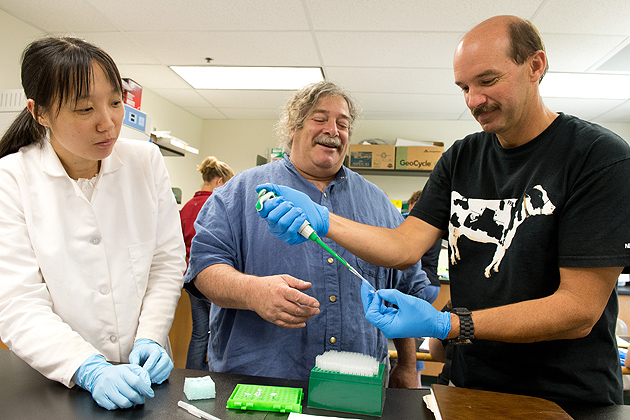
A group of Connecticut high school teachers learned recently from UConn scientists how to use molecular genetics and DNA analysis to identify genetically modified foods, a tool they hope will help engage their students in the study of science.
“Our focus is not so much on the methods of forensic analysis,” said Gerald Berkowitz, professor of plant science and landscape architecture and one of the developers of the workshop. “What we are trying to do is give teachers a way they can capture their students’ imaginations and make science relevant. This workshop gave us a way to transform ideas into a practical test.”
The day-long workshop, held on June 28, was jointly sponsored by the Department of Plant Science and Landscape Architecture in the College of Agriculture and Natural Resources and the Connecticut Department of Education.

During the workshop, teachers were shown how to determine whether food contains genetically modified plant products. By using a technique known as Polymerase Chain Reaction (PCR), participants learned how to remove DNA from food samples such as corn chips, organic corn meal, and vegetarian sausage.
They then learned to use another technique, electrophoresis, which separates charged molecules and provides a means of looking at the DNA separated by size.
In the last part of the seminar, they were taught how to analyze their results.
You are what you eat, said Berkowitz, and it’s particularly important for today’s consumers to know what is in the food they purchase. “When teachers take this exercise back to their classrooms, their students will be able to see for themselves how the study of molecular biology has practical applications.
What’s more, he said, “They’ll also be able to take part in a cool exercise using really sophisticated laboratory techniques.”
Berkowitz said the workshop is “one way we live up to the College of Agriculture’s outreach mission. Most [of those who attended] got their degrees at UConn, and by giving them further training, at no cost, we’re strengthening the University’s ties to some of the state’s best teachers.”





